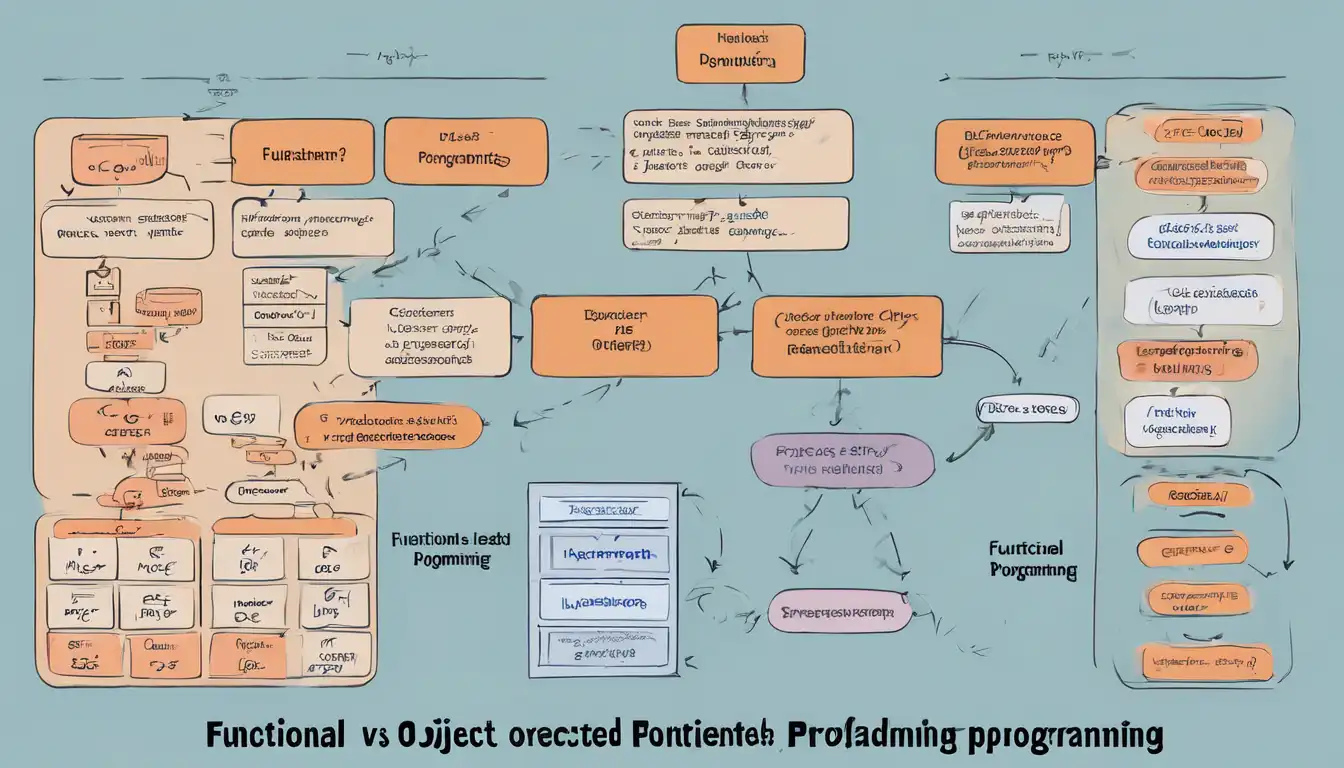Introduction to Programming Paradigms
In the world of software development, understanding the differences between functional programming (FP) and object-oriented programming (OOP) is crucial for choosing the right approach for your project. Both paradigms offer unique advantages and challenges, making them suitable for different types of problems.
What is Functional Programming?
Functional programming is a paradigm that treats computation as the evaluation of mathematical functions and avoids changing-state and mutable data. It emphasizes the application of functions, in contrast to the imperative programming style, which emphasizes changes in state.
- Immutable Data: In FP, data is immutable, meaning it cannot be changed after it's created.
- First-Class Functions: Functions are treated as first-class citizens, allowing them to be passed as arguments to other functions.
- Pure Functions: Functions in FP are pure, meaning they always produce the same output for the same input and have no side effects.
What is Object-Oriented Programming?
Object-oriented programming is a paradigm based on the concept of "objects", which can contain data and code: data in the form of fields, and code, in the form of procedures. OOP focuses on the objects that developers want to manipulate rather than the logic required to manipulate them.
- Encapsulation: OOP bundles the data and the methods that operate on the data into a single unit.
- Inheritance: This allows a class to inherit properties and methods from another class.
- Polymorphism: It enables one interface to be used for a general class of actions.
Comparing Functional and Object-Oriented Programming
When deciding between FP and OOP, consider the nature of your project. FP is often better suited for applications where the flow of data is more important than the objects themselves, such as in data processing or concurrent applications. OOP, on the other hand, shines in scenarios where modeling real-world entities and their interactions is key.
Performance Considerations
Functional programming can offer performance benefits in certain scenarios due to its emphasis on immutability and pure functions, which can lead to more predictable code and easier parallelization. OOP, with its focus on objects and encapsulation, can sometimes introduce overhead but provides a clear structure for complex systems.
Choosing the Right Paradigm
The choice between FP and OOP often comes down to the specific requirements of your project and the preferences of your development team. Many modern programming languages, such as Python and JavaScript, support both paradigms, allowing developers to leverage the strengths of each as needed.
Conclusion
Both functional and object-oriented programming have their place in software development. By understanding the core principles and advantages of each, developers can make informed decisions about which paradigm to use for their projects. Whether you choose FP, OOP, or a combination of both, the key is to write clean, maintainable, and efficient code.
